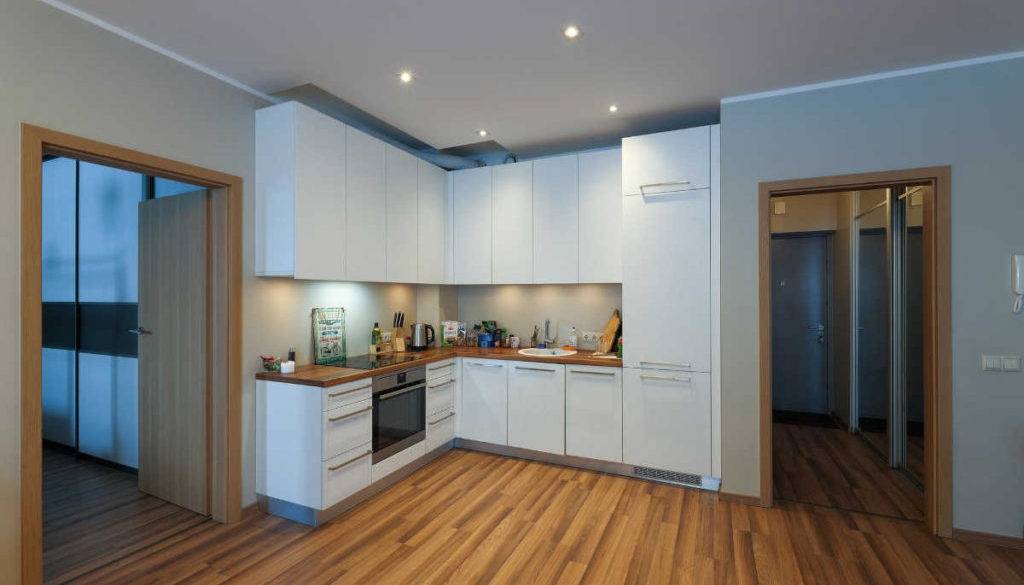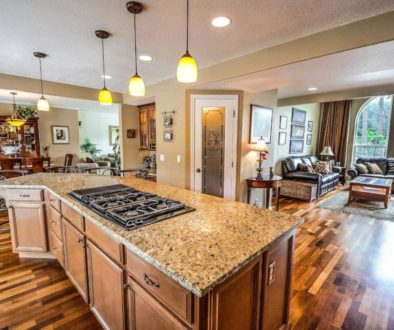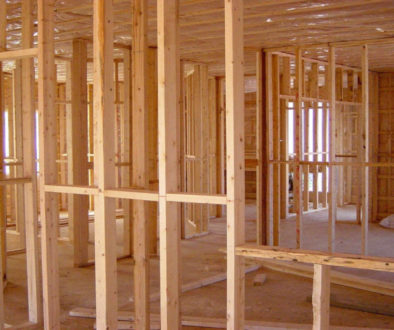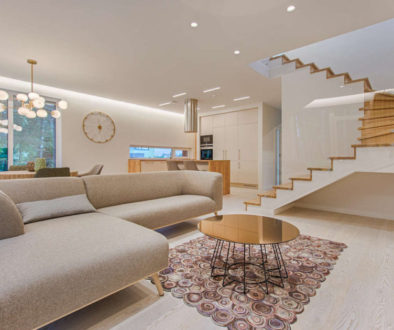As a contractor, I often get asked from clients, what floor is the most durable?
My response to them varies just like property types vary. For instance, is your property an A, B, C, or D class? What type of renter are you trying to attract from an income standpoint? These questions matter because people are different and they will treat your property differently from you or another tenant. Even as a residential property I would advise clients in the same way. Do you have dogs, kids, or a large family?
The goal of your investment property is to make money, while minimizing expenses. Replacing a floor everytime a tenant leaves will add up quickly and eat into your profits. The cost of new flooring has to be justified. You will want to find flooring that meets a handful of criteria and brings your property some return on investment. Here are the factors you should consider as you choose new flooring for your rental property.
Affordable Flooring
The cost of flooring depends on three factors: the cost of material, the cost of installation labor, and the cost of routine maintenance.
Like most products, there are high-end versions of each type of flooring and their more affordable counterparts. The flooring I suggest below is usually the most affordable flooring on the market
Tile- porcelain or ceramic
Carpet- thin knap, nothing plush
Cork
Floating wood tiles
Vinyl sheets
Vinyl tiles
Laminate
Linoleum
Low-Maintenance Flooring
Low-maintenance flooring allows you to avoid regular maintenance, like waxing, oiling, or buffing. This is conducive for a rental property since tenants likely won’t be conducting regular maintenance on the floors.
Maintenance on floors usually requires all furniture be removed from the area. It is highly unlikely you would be doing any flooring maintenance while tenants are occupying the unit. Ideally, you want floors that are low-maintenance to eliminate the expense and headache of maintenance itself. For this reason, I suggest the following floors:
Carpet
Engineered hardwood
Cork
Floating wood tiles
Vinyl sheets
Vinyl tiles
Laminate
Linoleum
Flooring That’s Easy to Fix
Floors that are easy to fix without having to replace the whole thing saves time and money. Lets face it, tenants are not always aware of their surroundings and don’t have the same pride as owning their own home. Being able to replace a panel or two makes life easier.
Maintainability is also based on how easy it is to clean the floors. Being able to easily remove stains and marks from flooring is essential for a rental property, particularly if you rent to families with younger children or college students. Here are flooring options that are the easiest to maintain:
Floating wood tiles
Vinyl sheets
Vinyl tiles
Laminate
Linoleum
Durable Flooring
Durable flooring lasts longer under high traffic circumstances. It has the ability to withstand frequent moves with furniture coming and going. Floors that are not durable are not a good option for rental properties, which is why we recommend the following durable flooring options:
Vinyl sheets
Vinyl tiles
Laminate
Linoleum
Flooring That’s Aesthetically Pleasing
You want attractive flooring to draw in certain tenants and more easily rent your unit. I recommend having continuous flooring throughout your unit, with the exception of bathrooms. For bathrooms I recommend tile and cement board subfloor for protection against water and moisture. Uniform flooring throughout helps your unit look bigger and more modern.
Keep in mind that tenants will pay a higher rent price to live in a nice, modern unit. After updating your floors, you should increase rent to reflect the updated value of your units.
We recommend the following aesthetic flooring options:
Vinyl tiles
Laminate
Linoleum
Hardwood
Flooring With Easy Installation
Floors that easily install are dependent on two factors: how easy the installation process is and how easy it is to find a supplier. The less time it takes to install, the lower chance of vacancy. And the less time you spend finding a supplier, the more time you have for other important landlord tasks.
Keep in mind that while stone, tile, and hardwood floors are visually appealing, they are also usually the most difficult to install and most time consuming to install.
Our Recommendations for Rental Property Flooring
Each landlord should choose the flooring that makes the most sense for their rental property.
Here are some additional factors to consider:
The value of your property: Higher-end rentals attract tenants who expect nice flooring. You’ll likely need hardwood or other luxurious, durable floors.
Location of the property: For areas that are hot and humid year-round, tile is better than hardwood floors or carpet. Tile keeps the unit cooler and is low-maintenance.
Pet-friendly rentals: Floors like Vinyl, laminate, or tile are the best flooring options for pets
Current Market: What is the income range in the area of the rental
Class of the Property: A,B,C, or D
Your decision will also be based on whether you want to put in a larger initial investment or would prefer to update your flooring in the short-term. Durability and affordability often contradict, meaning if you want your floors to last a long time, you’ll likely need to pay more up front. If this is a value add property, I would install floors that will attract the type of tenants you desire as well as the class of property you are shooting for.
Based on our recommendations above, the following floors make the most sense in a rental property:
Vinyl Tiles
Vinyl tiles can look like tile, wood, or stone. They’re highly water and scratch resistant so you don’t have to worry about spills or minor damage. In the event of a major problem, vinyl tiles are easily replaceable. Because they snap together and “float”, the piece that is damaged can be replaced with ease. They are flexible and can cover most surfaces with little or no prep, which makes installation a breeze. Vinyl tiles are also low-maintenance and affordable.
Laminate
Laminate is another affordable option, and it’s easy and quick to install. We recommend having a tough finishing layer for your laminate flooring to protect the floor from fading, stains, and wear-and-tear. With the tough layer, the floor will be durable and easier to maintain, even in units with pets and young families. Laminate floors are a great hardwood alternative for budget-conscious landlords who want the appeal of wood floors.
Linoleum
Linoleum is affordable, easy to maintain, and can last up to 40 years. Linoleum comes in many patterns and can look like hardwoods or tile.
Hardwood
Hardwood floors are a more luxurious form of flooring. Hardwood also requires more maintenance to stay in good condition, and for this reason, hardwood only makes sense in higher-end rentals. Hardwood is a larger initial investment, but the durability and high-end appeal of hardwood makes it a great option for some rental properties.
When choosing a flooring for your rental, you will have many things to consider. Always plan for the type of tenants you have or will have. If cost is a factor, plan on a decent amount of maintenance. If your main objective is maintenance free, then be prepared to spend the money. For more information or any questions you may have, feel free to reach out to us at Temprano Construction. We have many articles you find interesting.



